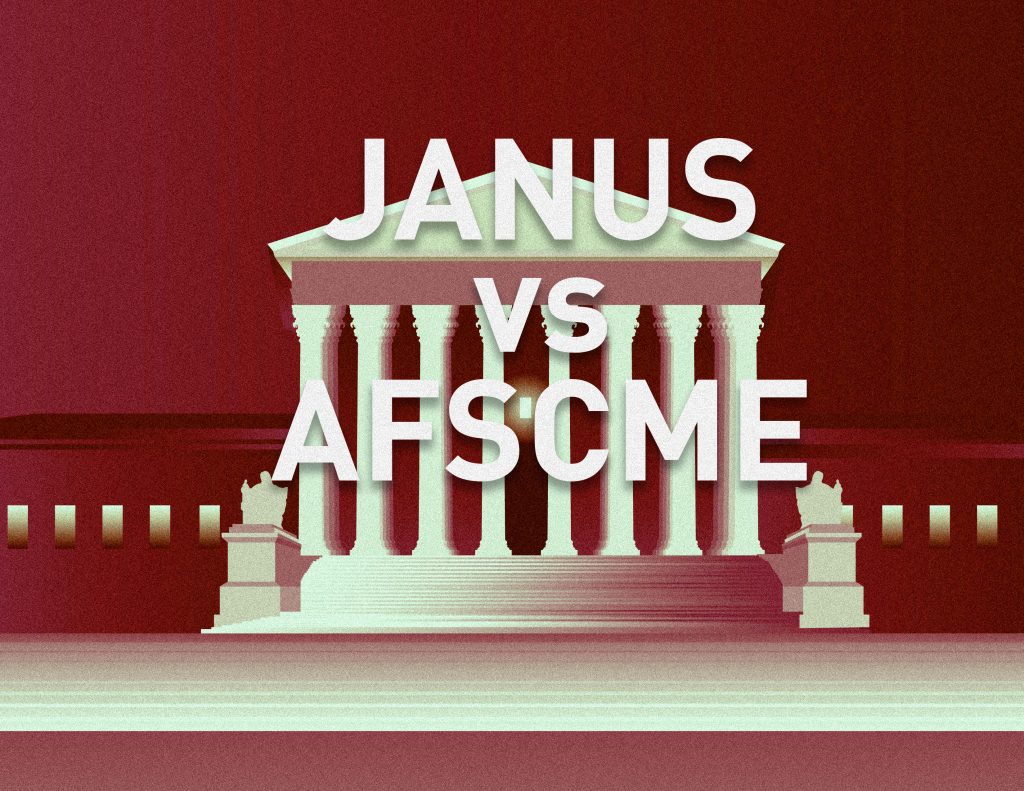Judging Janus
Breaking News: Supreme Court Rules Against Unions in ‘Janus’
Led by Associate Justice Samuel Alito, the five-member majority issued a decision that is the culmination of a multi-year effort that has its roots in right-wing judicial organizations, foundations and think tanks.

Today’s U.S. Supreme Court’s ruling in Janus v. AFSCME should surprise no one who has been watching its conservative justices’ crusade to undermine the influence of American unions — and the political causes they support. Led by Samuel Alito, the five-member majority issued a decision that is the culmination of a multi-year effort that has its roots in right-wing judicial organizations, foundations and think tanks. These entities correctly determined that the long-term political success of the right would be immeasurably enhanced if unions representing government workers could be weakened.
That’s exactly what the high court’s ruling will do, though the full extent of the damage won’t be known for years, and will depend on the tenacity and creativity of the response by unions and their allies. What we do know is this: A 41-year-old precedent has fallen, one that required workers who decline union membership but nevertheless benefit from collective bargaining agreements to pay “fair share” fees to the unions that negotiate these contracts.
Later today, labor law professor Charlotte Garden will tell Capital & Main readers what the ruling says about the politicization of American jurisprudence, and what lies ahead for public sector unions.
For a deeper understanding of the lead-up to today’s decision, visit Capital & Main’s special section on Janus v. AFSCME.
Copyright Capital & Main

-

 Column - State of InequalityJanuary 22, 2026
Column - State of InequalityJanuary 22, 2026On Eve of Strike, Kaiser Nurses Sound Alarm on Patient Care
-

 The SlickJanuary 20, 2026
The SlickJanuary 20, 2026The Rio Grande Was Once an Inviting River. It’s Now a Militarized Border.
-

 Latest NewsJanuary 21, 2026
Latest NewsJanuary 21, 2026Honduran Grandfather Who Died in ICE Custody Told Family He’d Felt Ill For Weeks
-

 The SlickJanuary 19, 2026
The SlickJanuary 19, 2026Seven Years on, New Mexico Still Hasn’t Codified Governor’s Climate Goals
-

 Latest NewsJanuary 22, 2026
Latest NewsJanuary 22, 2026‘A Fraudulent Scheme’: New Mexico Sues Texas Oil Companies for Walking Away From Their Leaking Wells
-

 The SlickJanuary 23, 2026
The SlickJanuary 23, 2026Yes, the Energy Transition Is Coming. But ‘Probably Not’ in Our Lifetime.
-

 The SlickJanuary 27, 2026
The SlickJanuary 27, 2026The One Big Beautiful Prediction: The Energy Transition Is Still Alive
-

 Column - State of InequalityJanuary 29, 2026
Column - State of InequalityJanuary 29, 2026Are California’s Billionaires Crying Wolf?

